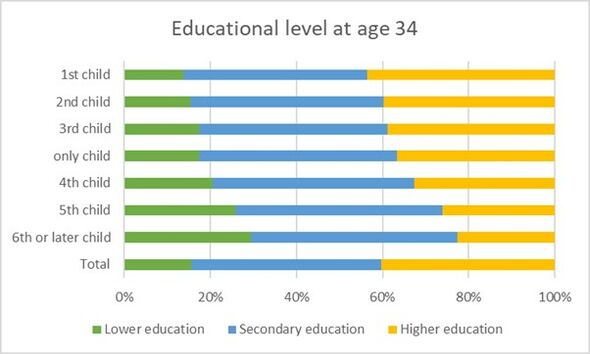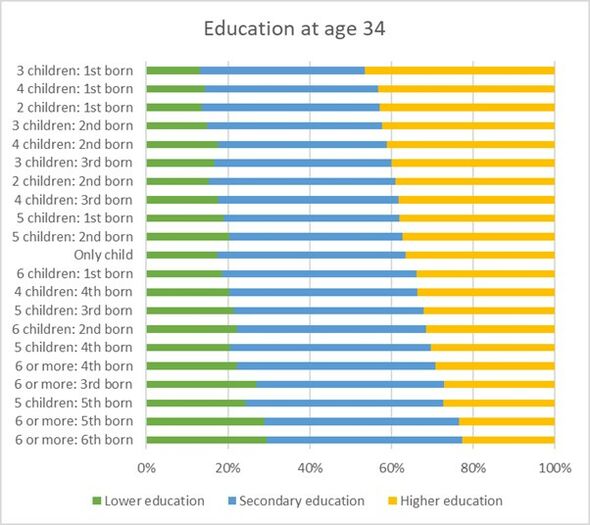It is a fact screaming out for an explanation. Statistics Netherlands (CBS) looked at which children in a family end up completing the highest level of education. At the age of 34, the first child has completed a programme in higher education in 43.6 percent of cases. The second child and third child come out at just under 40 percent. This is a noticeable difference.
It appears to be even harder to graduate with a higher degree in bigger families: the fourth, fifth and sixth children have a 33 percent, 26 percent and 23 percent chance, respectively, when it comes to obtaining a diploma of higher education.
But the one ‘first born’ is not the other. The first-born child has the greatest chance of graduating from an institution of higher education if he/she comes from a family with three children: 46.5 percent. And children numbers two and three in turn achieve a higher level than an only child, and they also perform better than the oldest child of a big family. At least in statistical terms.
Children five and six from big families therefore make the least progress in terms of institutional education: at age 34 less than 25 percent have obtained a diploma of higher education.
Statistics Netherlands has offered a brief explanation. Parents have to divide ‘sources of assistance’ such as money, time and energy among their children, and that is just more difficult in big families. First-born children have the undivided attention of their parents for that much longer. It may well be that they also help their younger brothers and sisters with their homework and by doing so develop greater skills.
But Statistics Netherlands has emphasised “that the correlations are not causal and the differences are not that big”. In other words: actually, your older brother or sister isn’t always smarter.




Discussion